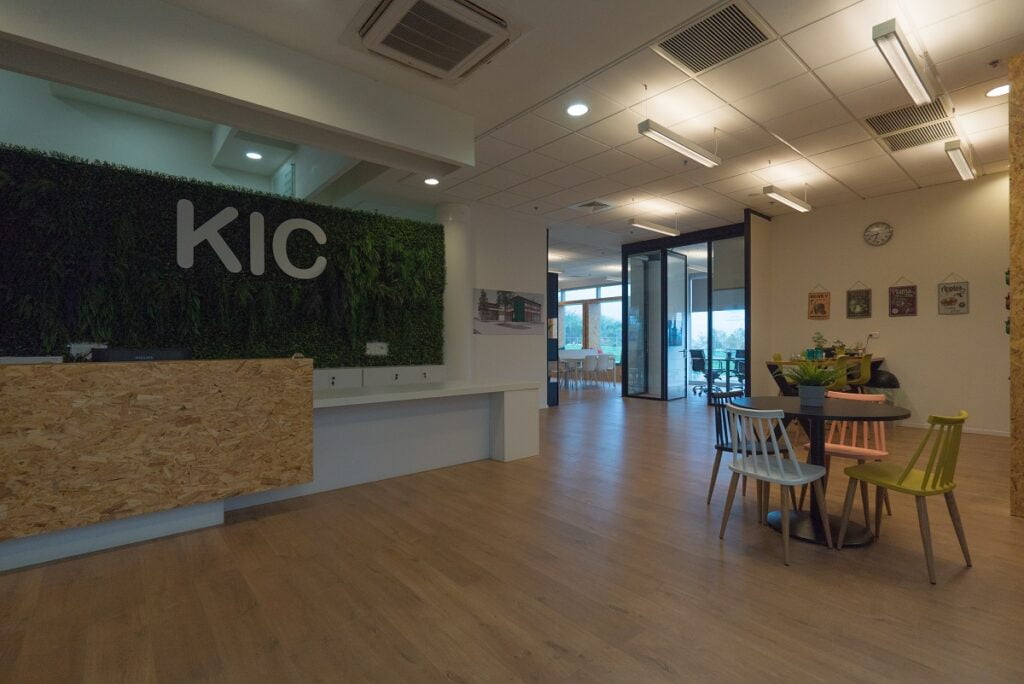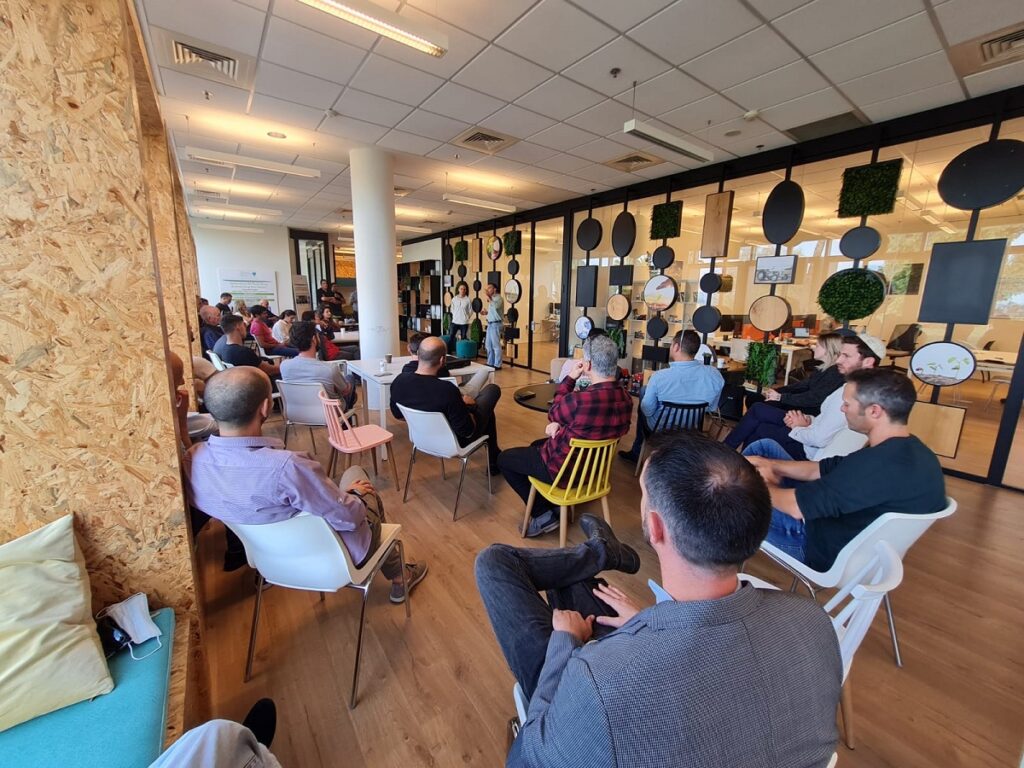For years, Israelis living outside of central Israel have struggled to find high-tech jobs. And while the country has made great efforts to create accelerators and bootcamps that cater to underrepresented communities – including those in the periphery – according to the Kinneret Academic College, the answer to the tech employee shortage dilemma is to bring more startups to the north.
“Five years ago, the Kinneret Academic College found out the stunning fact that only two percent of their graduates find jobs in their professions here in Northern Israel. But 94 percent of their alumni find jobs within their professions in three to four months,” Elad Shamir, CEO of the Kinneret Innovation Center tells NoCamels, “That means that the title is great, the education is great, but there aren’t enough opportunities for alumni to integrate within the northern part of Israel.”
In 2018, Kalman Kaufman, former president of KLA Instruments Israel, corporate vice president of Applied Materials, and then-member of the Management Committee at Kinneret Academic College recruited a team that included (now retired) Major General Ilan Biran and Shimon Gepstein, president of the Kinneret Academic College to create more reasons for former students to come back to the area around the Sea of Galilee.
According to Shamir, they came together and said, “We have to step out of our boundaries and take responsibility for creating opportunities in the region.”

The Kinneret Innovation Center (KIC) was founded in August 2018 as a living lab in the heart of the Jordan Valley that enables startups and key corporate players to build advanced tech solutions and bridges the gap between academic, industrial, and agricultural communities in the region. The center was founded in partnership with the Kinneret Academic College, Zemach Regional Industries Ltd., a cooperative owned by 33 agricultural communities in the North of Israel; and the Jewish National Fund.
The center aims to be an “engine of growth” in the North of the country while utilizing the knowledge, expertise, and resources of the area to focus on agritech, water tech, food tech, energy, and sustainability, Shamir explains. “Kalman approached me and said, ‘We’re establishing a company dealing with innovation. And the goal is to leverage the region’s strength.'”
Shamir said the group looked at “a number of really nice test cases in Israel” like the international food tech center in Kiryat Shmona and the cybersecurity center in Beersheba. “Each had a different approach to basically very similar needs and aspirations,” he says but relied on government funding to move forward.
KIC didn’t want to do that. “We saw that without real collaboration between all the players around us, we would waste a lot of energy,” Shamir says, “So we said we’re going to do it. Bootstrapping, leveraging real strength in the region, we created a grassroots movement with the academia and industries as shareholders in a new company. That’s creating stability, and a joint vision that combines the academia and the industry and the community.”
The KIC ecosystem is based on an approach that connects academia, technology, and agricultural communities through various channels. The center has an accelerator and an incubator for startups and provides access to a large network of investors, mentors, and potential customers in Israel and around the world as well as a direct connect connection to local industries for pilot and research purposes. The center offers its own investments, including micro-investments for startups in the pre-seed stage and a KIC Impact Fund for startups raising money in seed and Series A rounds.

KIC has an Innovation Academy where it offers courses in innovation, how to build a startup, digital transformation and more, and regularly holds hackathons for water tech, agritech, and other industries. The Innovation Academy works with students, faculty members, industries, entrepreneurs, and international organizations.
KIC and its partners are working on building a Hi-Tech park that they want to be the best R& and innovation facility in Northern Israel, and a focal point for the high-tech industry in the area.
“These are the main technological advantages we have here,” Shamir explains, “If you were a fintech startup coming from Tel Aviv, we can give you a really nice accelerator program, but your place is Tel Aviv. If you had an agritech startup, you’d want to be close to the farmers.”
Sign up for our free weekly newsletter
SubscribeKIC can’t give you the benefits of the city, Shamir tells NoCamels, but it has connections to “professors, labs, 100 factories related to the agricultural sector, 100 CEOs, 100 R&D managers or CTOs that can give advice or create a pilot program at an experimental farm 400 meters from me.”
The center currently works with 32 startups within its portfolio, including Hargol Foodtech, the company developing alternative protein from grasshoppers, 4M Analytics, a company providing a subsurface-infrastructure database, BioCastle, a company developing tech to bioengineer and treat water and wastewater, and BeeFreeAgro, a computer vision-based autonomous drone solution that assists cattle ranchers.

The startup 4M Analytics began as a company that detected land mines using meta-analysis of data, satellite imaging, sensors, and more. But when they came to Kinneret Innovation Center, nobody wanted to invest because as Shamir put it “nobody wanted to touch the explosive side of things.”
“We got them to focus on the subterranean. All the utilities are underground, and nobody knows where they are. Think about it, you’re going to construct a home or a building or whatever, and you don’t know, what’s underneath you — communications, gas. And hundreds of billions of dollars are being poured into the insurance companies and to construction sites that are hurting the environment. And they can tell you what’s underneath,” he says.
The company was made up of experts in their field, but they pivoted and took their knowledge into a different sector. “They started by clearing land mines in the Golan,” Shamir says, “And now they’re mapping the United States.”
“They will be the Google Under Earth of the world,” he adds, “And they just raised $40 million.”
Another company he mentions is BeeFree Agro, an autonomous drone solution that enables cattle ranchers to monitor their infrastructure, locate their herds, and herd the cattle. The company’s solution is designed to cut costs for farmers and enable them to adopt new methods that will increase their yield per acre, while also remaining carbon positive with their farming and ethical with rearing through open grazing.
“They created a hover which is a cowboy. If a cow escapes, it can go after him as a cowboy will. IT uses machine learning and AI and even image processing, to understand the well-being of the animal.”
In just three and a half years, Kinneret Innovation Center has raised more than NIS 100 million ($31 million) and its companies have raised $60,000. The company currently has 17 employees and see at least 180 startups a year.
“I don’t know what the future holds that we’re pushing forward and great opportunities come. Some we take and some we don’t, but we try our best to do good. There’s an amazing team here. And if I want to wrap up something about that, nothing can be achieved without great people next to you,” Shamir says.
“That, for me as an entrepreneur, that’s the spark of the beginning of innovative thinking,” he adds “When we’re talking about innovation, there’s a spark that changes the vector of an organization in and that for me is the spark.”
Related posts

Editors’ & Readers’ Choice: 10 Favorite NoCamels Articles

Forward Facing: What Does The Future Hold For Israeli High-Tech?

Impact Innovation: Israeli Startups That Could Shape Our Future




Facebook comments